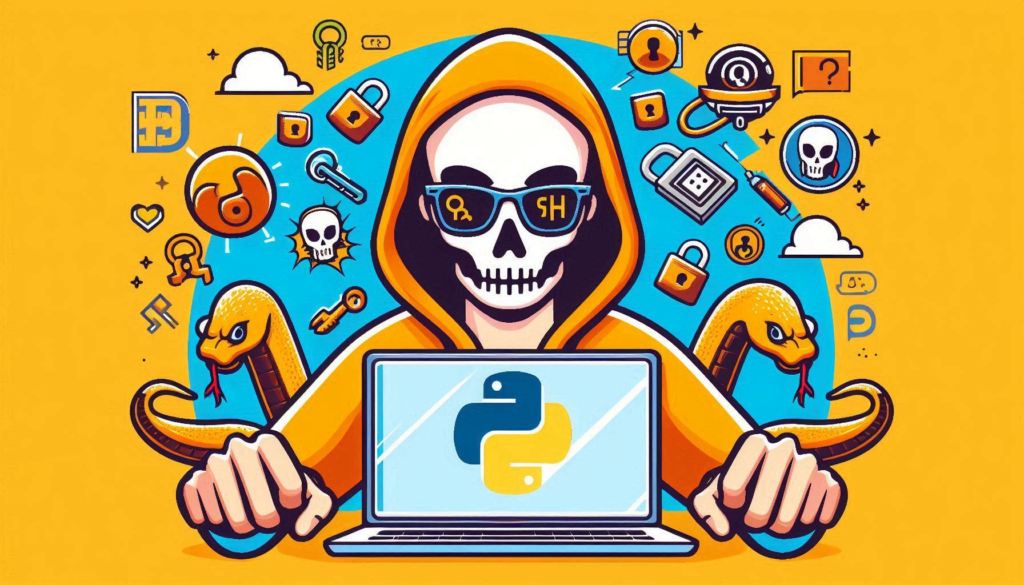A recent security incident has put Python’s core repositories at significant risk. A GitHub token leak has exposed these important repositories to potential threats, raising concerns within the development community. This incident highlights the need for securing access tokens and the consequences when they are not properly protected. In this article, we’ll explore the details of this github token leak, its potential impact on Python’s core repositories, and the steps that can be taken to prevent similar issues in the future.

What Are GitHub Tokens?
GitHub tokens are secret keys used to authenticate and authorize users and applications to access GitHub repositories. They can perform various actions such as reading, writing, and deleting code. These tokens are intended to be private and secure, ensuring that only authorized individuals or systems can interact with the repositories.
Github Token Leak: What Went Wrong?
The Github Token leak occurred due to a misconfiguration or an error that made these tokens publicly accessible.
JFrog, a company specializing in software supply chain security, found a leaked GitHub Personal Access Token in a public Docker container on Docker Hub. This token was embedded in a compiled Python file (“build.cpython-311.pyc”) and was unintentionally left behind during the build process.
JFrog said that this situation was particularly alarming because the potential consequences could have been severe if the token had been obtained by malicious actors. It could have allowed someone to inject harmful code into PyPI packages or even the Python language itself.
This can happen in several ways:
- Accidental Publishing: Sometimes, tokens are accidentally included in public files or repositories.
- Misconfiguration: Incorrect settings or permissions can expose tokens to unauthorized users.
- Insufficient Security Practices: Not following best practices for managing and storing tokens can lead to their exposure.
Once exposed, these tokens can be used by anyone who finds them, posing a significant security risk.
Potential Risks
The exposure of GitHub tokens can lead to various potential risks, including:
- Unauthorized Access: Attackers could use the leaked tokens to gain access to Python’s core repositories. This unauthorized access could allow them to read sensitive code, modify existing code, or even delete important files.
- Malicious Code Injections: One of the most concerning risks is the possibility of attackers injecting malicious code into Python’s core libraries. Since many projects and applications depend on these libraries, malicious code could spread widely, affecting countless users and systems.
- Data Theft: Sensitive information stored in the repositories, such as private code, configuration files, or other secrets, could be stolen by attackers.
- Reputation Damage: Such incidents can damage the reputation of the Python Software Foundation and the broader Python community, potentially leading to a loss of trust among developers and users.
Response and Mitigation Efforts
In response to this Github token leak, several immediate and long-term actions are being taken to mitigate the risks and prevent future incidents.
- Revocation of Leaked Tokens: The first step is to identify and revoke the exposed tokens. This ensures that they can no longer be used by unauthorized individuals. New tokens are then generated to replace the revoked ones.
- Audit and Monitoring: Comprehensive audits are being conducted to check for any unauthorized access or changes that may have occurred during the exposure period. Increased monitoring is also being implemented to detect any unusual activity in the repositories.
- Enhanced Security Measures: The incident has highlighted the need for stronger security practices. Some of the measures being implemented include:
- Stricter Access Controls: Limiting who can access and manage tokens and ensuring that only trusted individuals have access to critical repositories.
- Periodic Rotation of Tokens: Regularly changing tokens to minimize the risk of long-term exposure.
- Better Secrets Management: Using tools and practices designed to securely store and manage secrets, such as environment variables, secret management services, and encrypted storage.
- Community Engagement and Communication: Keeping the developer community informed about the incident and the steps being taken to address it is crucial. Transparency helps maintain trust and ensures that everyone is aware of the potential risks and how to mitigate them.
Recommendations for Developers
Developers who rely on Python’s core libraries should take proactive steps to ensure their projects remain secure:
- Review Dependencies: Check your project’s dependencies to ensure they have not been compromised. This includes regularly updating libraries and monitoring for any security advisories.
- Enhance Security Practices: Adopt best practices for managing and storing secrets in your own projects. This includes using secure methods for storing tokens, rotating them regularly, and implementing strict access controls.
- Stay Informed: Keep up-to-date with any advisories or updates from the Python Software Foundation and GitHub regarding this incident. Being aware of the latest developments helps you respond quickly to potential threats.
- Implement Automated Security Tools: Use automated tools to scan your code for exposed secrets and vulnerabilities. These tools can help you identify and fix issues before they become major problems.
Conclusion
The GitHub token Leak exposing Python’s core repositories serves as a stark reminder of the importance of cybersecurity in software development. While the immediate risks are being addressed through token revocation and enhanced security measures, the incident underscores the need for ongoing vigilance and proactive security practices.
By adopting robust security measures, staying informed, and working together as a community, we can mitigate the risks associated with such incidents and ensure the continued security and reliability of the Python ecosystem.




